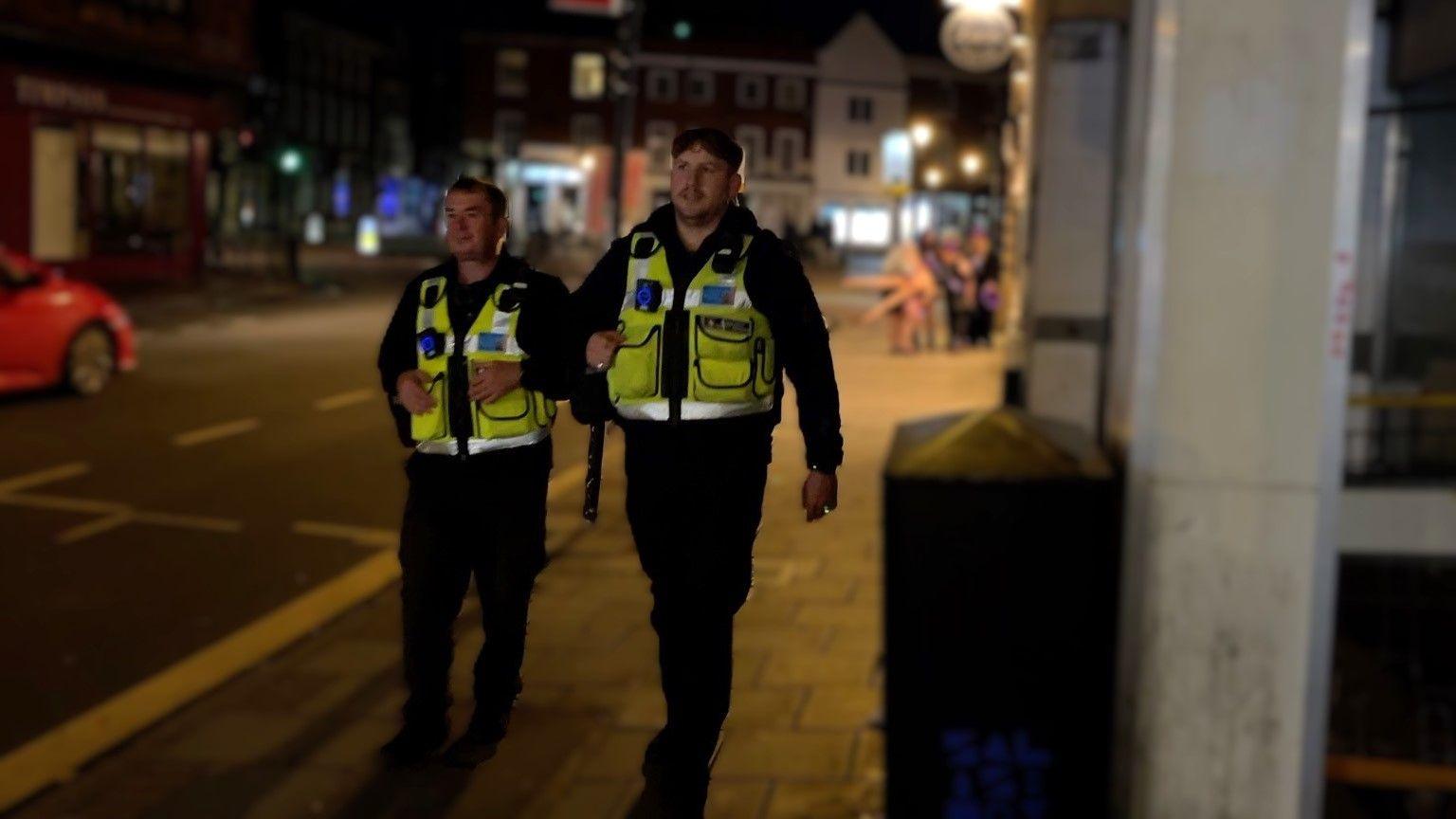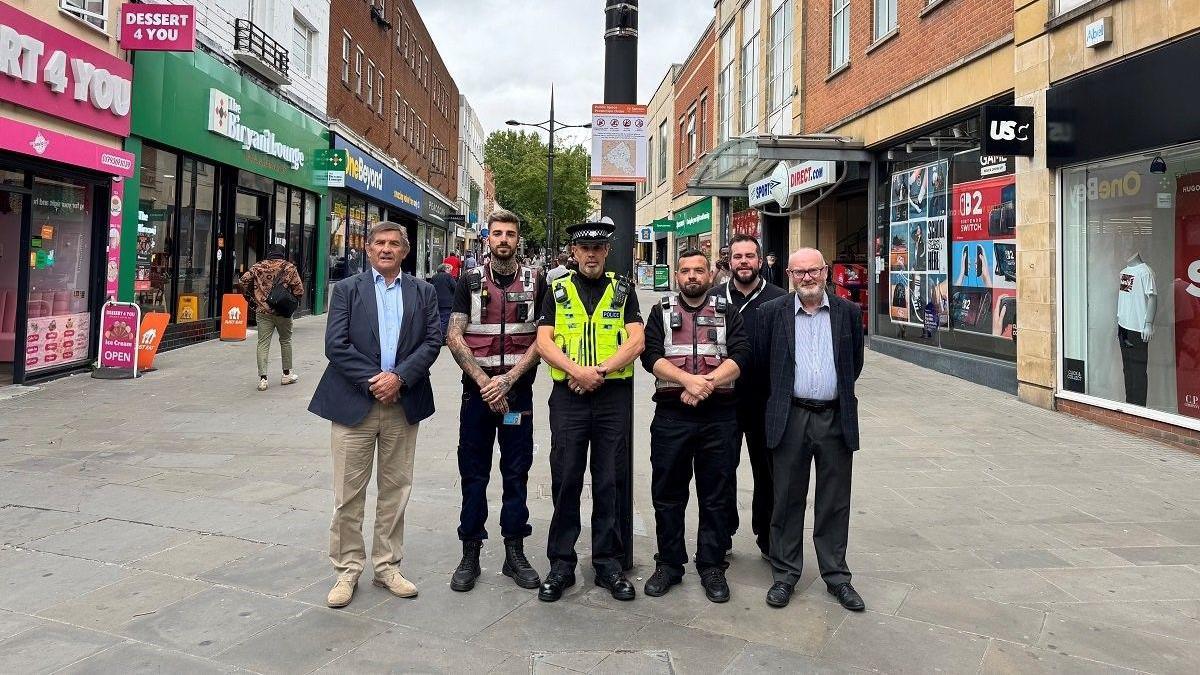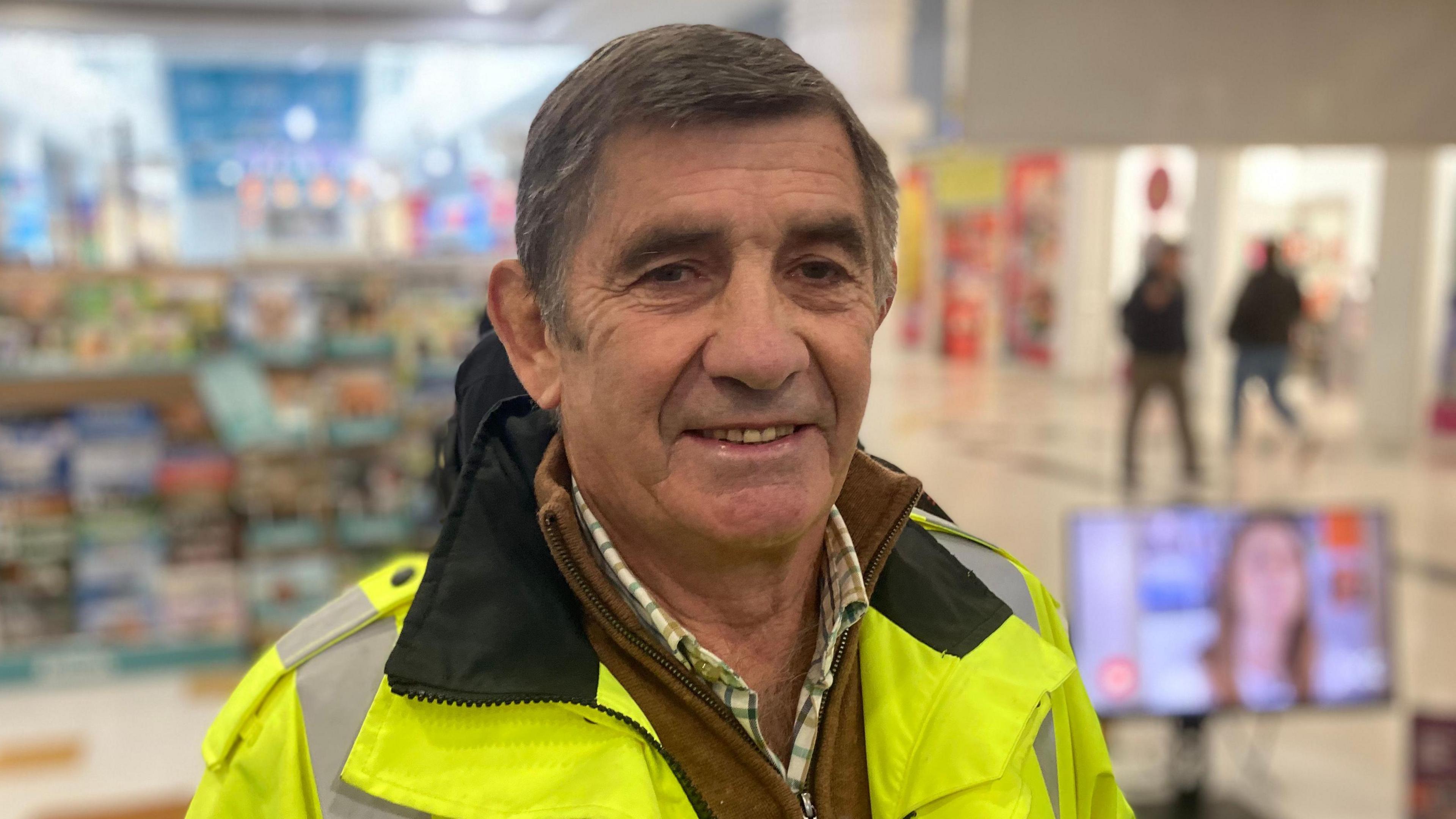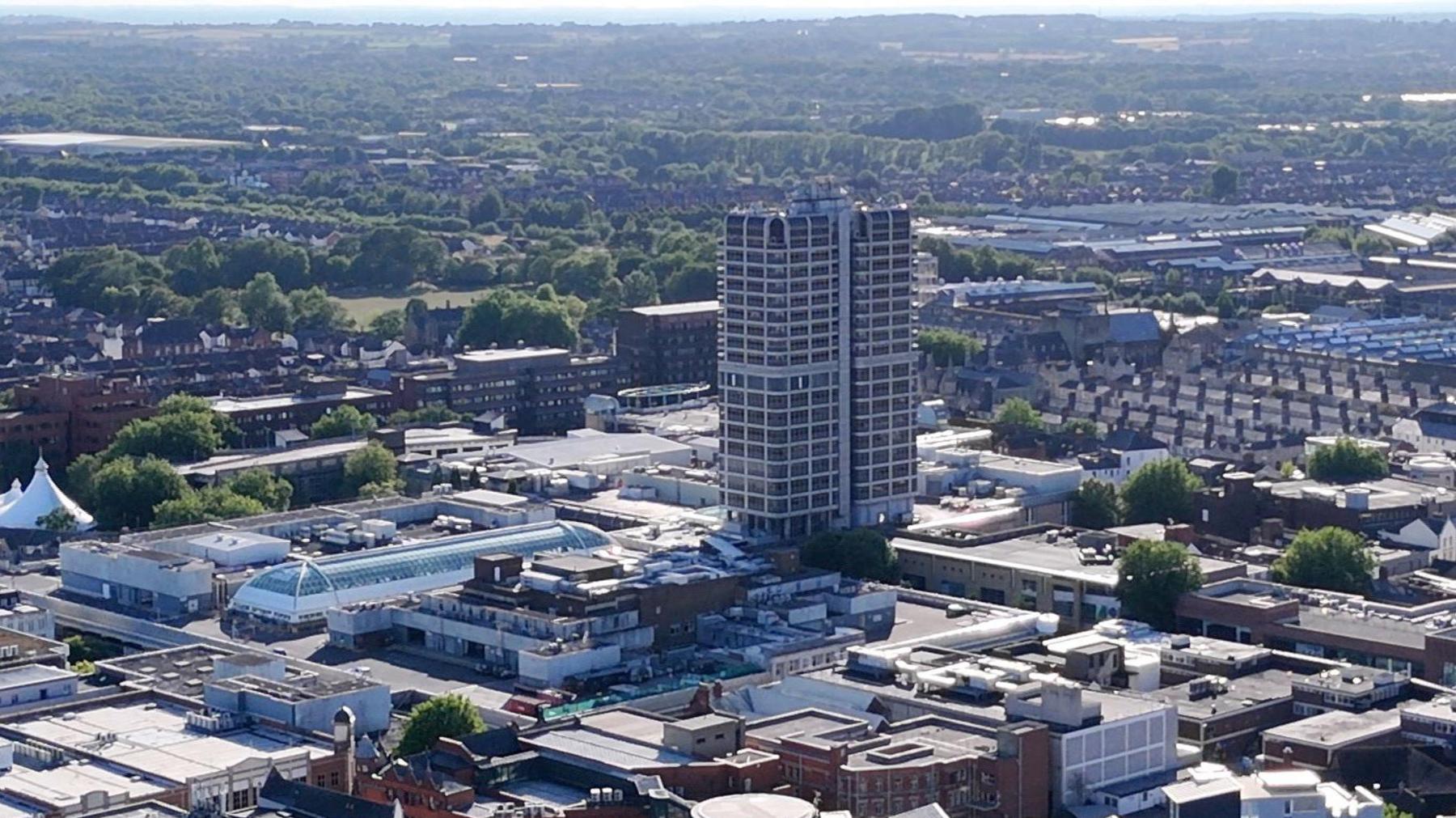Wardens tackling exploitation of rough sleepers
Listen to ASB wardens, Aidan Cooper and Dion Fotheringham, tackle incidents
- Published
A city's wardens have been helping rough sleepers who are being "bullied into shoplifting" or having their money stolen.
The wardens, who operate in Swindon and Salisbury, have also been partly credited for a reduction in antisocial behaviour (ASB) reports across Swindon and Wiltshire.
More than 10,000 ASB reports were made to Wiltshire Police in 2024, with the latest figures showing a drop of 9% in Wiltshire and 10% in Swindon for 2025.
Aidan Cooper, managing director of AEC Protection which supplies the wardens, said: "We are not the police. We are here from a safety point of view and making sure that vulnerabilities are captured."
ASB wardens have operated in Salisbury since June and will continue until March 2026.
While working in the city, wardens have witnessed the exploitation of rough sleepers who have been bullied into shoplifting or handing over their benefits, Mr Cooper added.
Funded by the Police and Crime Commissioner (PCC), the wardens also target drug dealers, shoplifters and support vulnerable people.
Footage from body warn cameras, photographs and written reports are uploaded throughout warden's shifts and used by Wiltshire Council and Wiltshire Police to reassess problem areas and highlight individuals of concern who need support.

Rough sleeper patrols happen throughout day and night shifts
During shifts, ASB wardens are connected by radio to CCTV volunteers called "City Watch", businesses, door staff, the police control room and volunteer street pastors capable of providing a collective response to incidents if needed.
Mr Cooper said: "We are the eyes and ears on the ground.
"We provide a link between City Watch, the police control room, businesses and door staff."
Get in touch
Tell us which stories we should cover in Wiltshire
Follow BBC Wiltshire on Facebook, external, X, external and Instagram, external. Send your story ideas to us on email or via WhatsApp on 0800 313 4630.
Similar stories
- Published27 August

- Published23 July

- Published21 July
